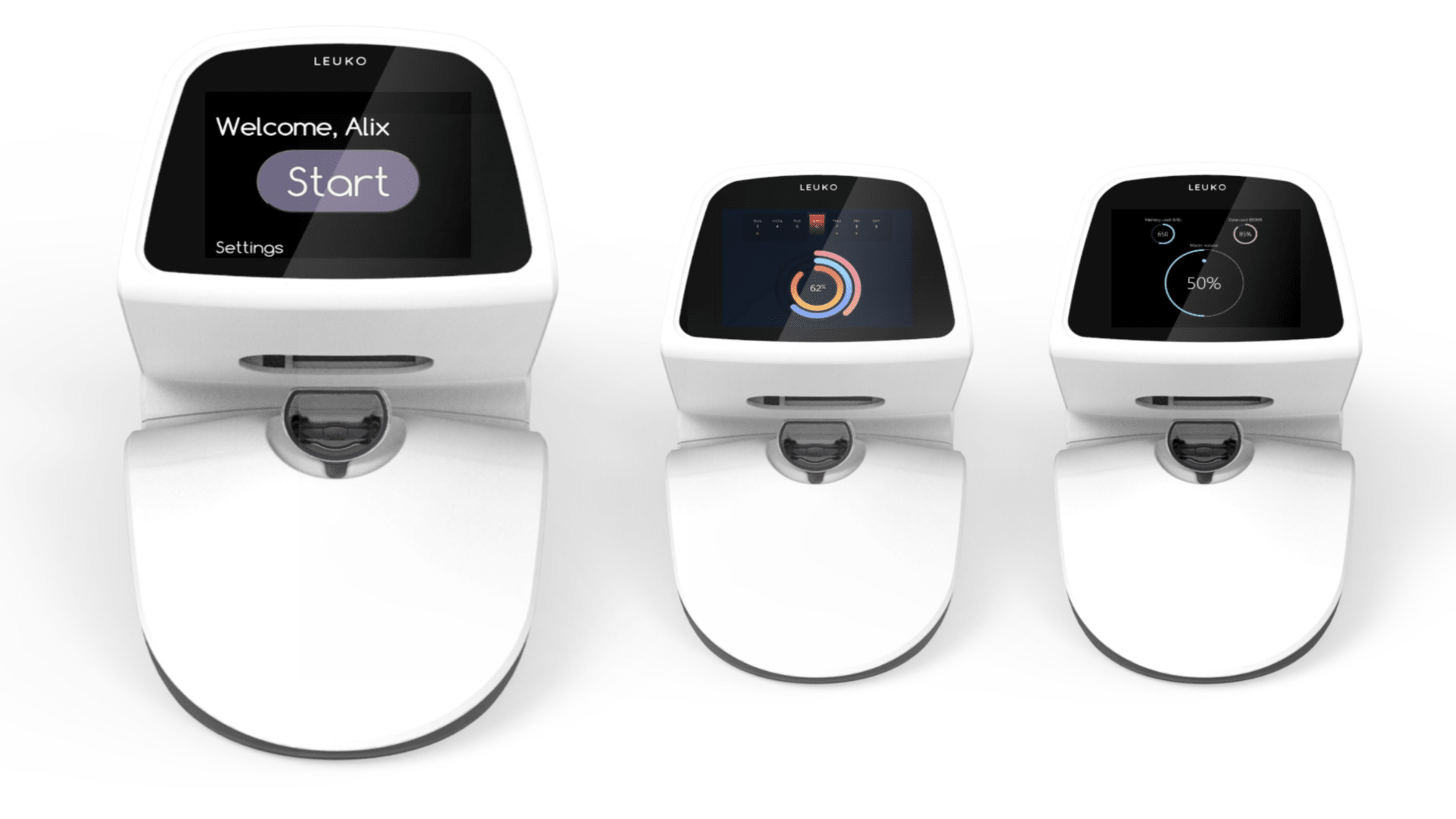
Each year, one million individuals receive chemotherapy in the United States alone. Cancer remains the leading cause of death globally, resulting in 10 million deaths in 2020.
The significance of cancer and finding solutions to improve treatment strategies inspired a group of researchers from MIT to develop portable monitor that has been designed to help patients track their white blood cell count.
According to the researchers, it could “eliminate 50 percent of hospitalizations” in cancer cases.
What is Leuko Labs?
Leuko Labs originated a few years ago at the Madrid-MIT M+ Vision Consortium (MIT linQ), an initiative that fosters medical entrepreneurship by connecting promising researchers with MIT faculty to address critical gaps in the field.
With the support of this exciting commercial initiative, Leuko’s founders focused on a major challenge in cancer treatment: the sole method for monitoring white blood cell count is through blood draws, which is not ideal.
The problem with chemotherapy
Approximately every 21 days, cancer patients undergo chemotherapy, which lowers their white blood cell count and increases their vulnerability to infections. Leuko co-founder Carlos Castro-Gonzalez has highlighted the alarming rates and risks.
“One in every six cancer patients undergoing chemotherapy will develop an infection where their white blood cells are critically low,” he said. “Some of those infections unfortunately end in deaths for patients, which is particularly terrible because they’re due to the treatment rather than the disease.”
Many of the infections that occur in chemotherapy patients in the United States annually could be prevented simply by monitoring the white blood cell count. The levels typically rebound, but doctors currently lack a system to accurately assess these levels before and after treatment.
With a need that significant, Leuko developed a noninvasive solution that would allow patients to check their white blood cell count more frequently, leading to greater precision in chemotherapy dosages.
During his clinical rotations, Castro-Gonzalez discovered that many patients could tolerate higher doses of chemotherapy, which initially led him to the MIT linQ health care innovation program.
The benefits of this advancement in healthcare could impact millions of individuals worldwide undergoing cancer treatment. “Research estimates that would eliminate 50 percent of hospitalizations,” Aurélien Bourquard, a Leuko co-founder, told MIT.
PointCheck checks white blood cell count through the fingernail
Resembling a futuristic fingerprint scanner, the PointCheck is an optics-based device, according to MIT’s Office of Innovation, “that can see through the skin and count white blood cells as they flow past a miniature lens.”
The capillaries at the base of the nail are so narrow and close to the skin that white blood cells must pass through one by one, making them easier to detect.
MIT clarified that while the device cannot provide an exact count, it can determine whether patients fall above or below the dangerous threshold of 500 neutrophils, the most common type of white blood cell.
In the future, Leuko Labs plans to branch out into measuring other blood components. But first they have to pass through a rigorous FDA approval process.
For the moment, PointCheck remains an investigational device. They’ve been developing the product for the past four years, culminating in a study to be submitted to the FDA this year. Their studies thus far have shown exceptional promise. A previous study published in Scientific Reports showed that their device was 95% accurate.
For both patients and doctors alike, PointCheck could greatly improve the systems in place already for treating cancer and reduce the major complications that come with the world’s most prevalent disease.
ABOUT THE EDITOR
Maria Mocerino Originally from LA, Maria Mocerino has been published in Business Insider, The Irish Examiner, The Rogue Mag, Chacruna Institute for Psychedelic Plant Medicines, and now Interesting Engineering.


